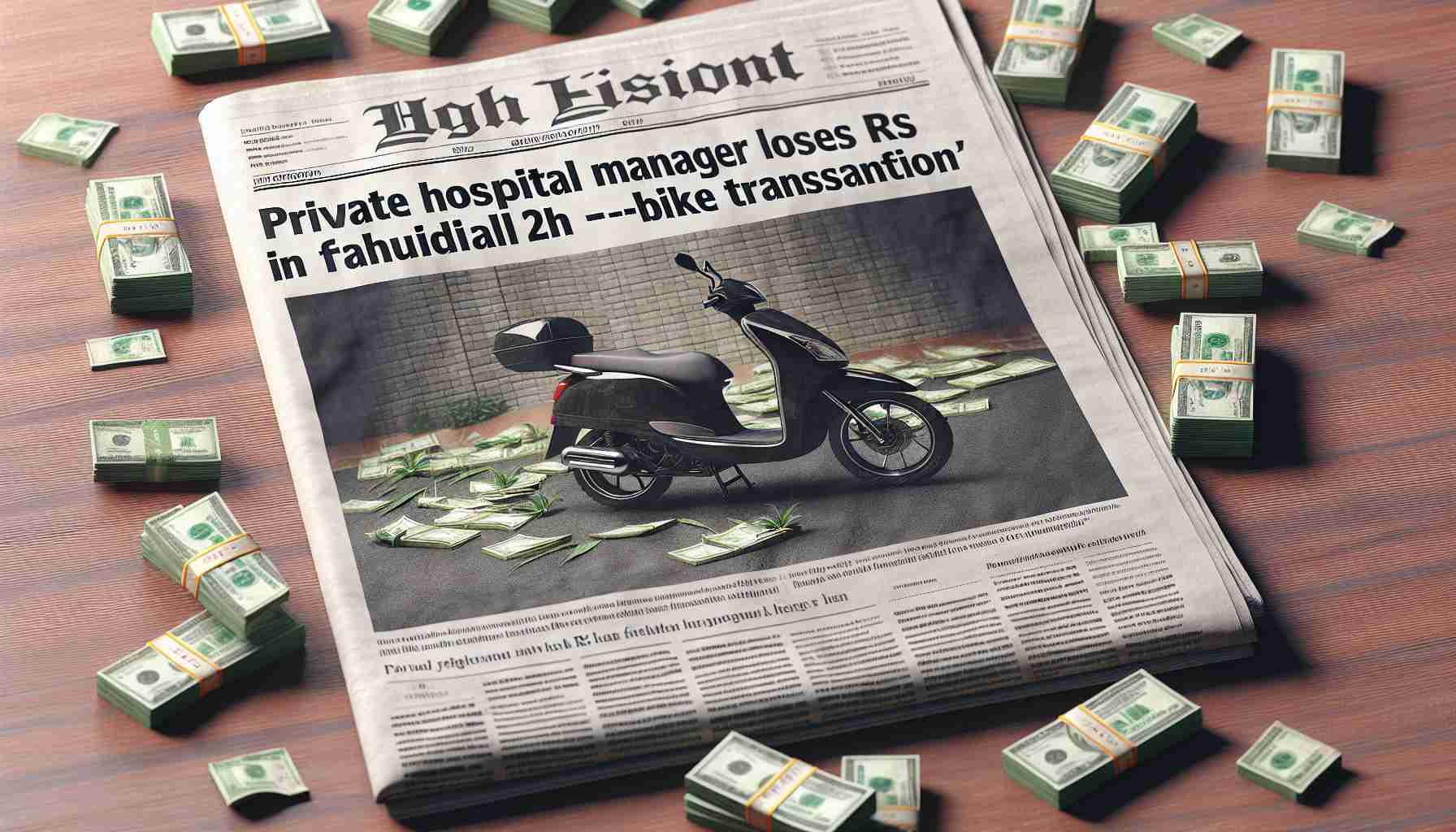In a shocking incident, a hospital manager fell victim to a scam and lost Rs 2.6 lakh while trying to purchase e-bikes online. The manager, who wished to remain anonymous, lodged a complaint with the local police after realizing that he had been tricked.
According to the manager, he was browsing the internet searching for an e-scooter when he encountered an individual who claimed to be selling electric bikes. The scammer sent him counterfeit quotations for the e-scooter, priced at Rs 1.18 lakh each. Falling for the seemingly legitimate deal, the manager agreed to purchase eight bikes and paid the required booking amount.
The scammer, taking advantage of the manager’s trust, also convinced him to pay the GST charges, resulting in a total transaction of Rs 2.6 lakh. However, as soon as the money was transferred, the scammer disconnected his mobile phone and disappeared, leaving the hospital manager in distress.
The incident caught the attention of the local police, and a dedicated team led by DCP (Dwarka) Ankit Singh was formed to investigate the case. Their efforts soon paid off as they traced the transferred money to the account of Summy Kumar Agnihotri, a resident of Dhanbad in Jharkhand.
Although Agnihotri initially evaded joining the probe, a non-bailable warrant was issued against him. Eventually, he was apprehended from Jharia in Dhanbad. The police believe that Agnihotri may be involved in other such fraudulent activities and are exploring further possibilities.
This incident serves as a reminder for online shoppers to exercise caution and thoroughly research the credibility of sellers before making any financial transactions. With the rise in digital scams, it is essential to stay vigilant and remain aware of potential pitfalls.
The incident involving the hospital manager falling victim to an online scam highlights the need for caution in the digital marketplace. This incident is a sobering reminder that scammers are becoming increasingly sophisticated and targeting unsuspecting buyers.
The e-bike industry is experiencing significant growth as more individuals seek eco-friendly transportation alternatives. With the increasing demand for electric bikes, it is crucial for consumers to be aware of the potential risks associated with online purchases.
According to market forecasts, the global e-bike market is expected to witness substantial growth in the coming years. Factors such as government initiatives to promote green transportation, rising fuel prices, and growing concerns about environmental sustainability are driving the demand for e-bikes.
However, along with the growth of the industry, there are also challenges and issues that need to be addressed. One of the main issues is the prevalence of online scams and fraudulent activities targeting unsuspecting buyers. The incident involving the hospital manager is just one example of the risks associated with online purchases.
To protect themselves from falling victim to scams, consumers are advised to exercise caution and thoroughly research sellers before making any financial transactions. It is essential to verify the credibility of the seller and ensure that they have a legitimate business operation. Checking for customer reviews, verifying contact information, and being aware of common scam tactics can help buyers make more informed decisions.
Additionally, it is recommended to use secure payment options and avoid sharing sensitive personal or financial information with unknown sellers. If an offer seems too good to be true, it is important to question its legitimacy and proceed with caution.
Overall, while the e-bike industry shows promising growth and offers a sustainable transportation solution, consumers must remain vigilant to protect themselves from online scams and fraudulent activities. By being aware of the potential risks and taking necessary precautions, individuals can safely navigate the digital marketplace and enjoy the benefits of e-bikes.
For more information on online shopping safety and fraud prevention, you may visit Federal Trade Commission’s website on online shopping safety.







